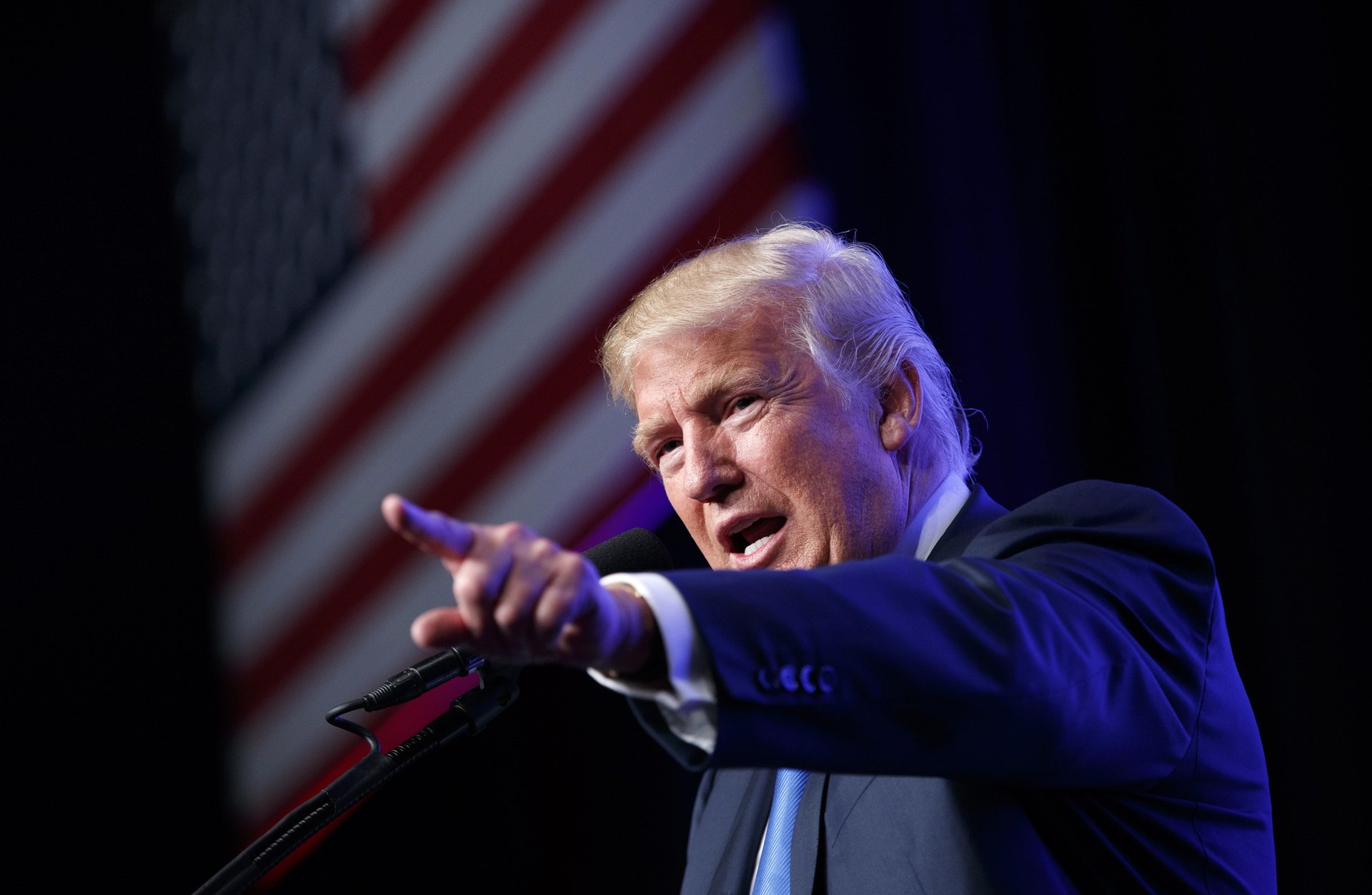New York Times editor on Trump: “We will call out lies”
The Huffington Post branded him a serial liar months ago. Now, the most traditional American media outlets have also abandoned journalistic diplomatese in their coverage of Republican candidate Donald Trump, and are reaching for new ways to flag the word “lie.”


The Huffington Post branded him a serial liar months ago. Now, the most traditional American media outlets have also abandoned journalistic diplomatese in their coverage of Republican candidate Donald Trump, and are reaching for new ways to flag the word “lie.”
In at least five articles in the New York Times on Sept. 17, including the lead story in the print edition, the words “lie,” “false,” ”falsely claimed” and “untrue” appeared in headlines, lead paragraphs, and top sections of the paper’s Trump coverage. The day before, CNN’s Jake Tapper called Trump “the most prominent pusher of the birther lie,” the Associated Press reported that Trump “peddled another lie,” and a Washington Post headline declared, “It’s time for TV news to stop playing the stooge for Donald Trump.”
It’s a marked change in language, even for outlets that have aggressively reported on Trump’s appeals to violence and bigotry. And it’s especially startling coming from the ultra-traditional Times, which even in the new digital age remains a north star for much mainstream media coverage.
“I think our investigative work—see [the Sept. 17] story on Trump’s tax breaks—has always been hard hitting,” says Dean Baquet, the New York Times’ executive editor. “But we have decided to be more direct in calling things out when a candidate actually lies.”
The shift in language coincides with Trump’s reversal on his false, five-year-old claims that president Barack Obama was born outside the US, which came with a new fabrication on the topic: that his opponent, Hillary Clinton, started the rumors about Obama’s birthplace.
Says Baquet, “The birther issue represents, well, outright lying. And he lied over a long period. It is a real word and we will use it when warranted.”
Of course, Trump has no lock on the tendency by politicians to veer from the facts. Hillary Clinton also has been known to stray from the truth on occasion. But conservative columnist Bret Stephens at the Wall Street Journal, who turned on Trump months ago, says their untruths are not equal. In a column (paywall) on Sept. 12, he said, “The difference is that Mrs. Clinton lies tactically to protect herself politically. Mr. Trump lies compulsively to aggrandize himself or belittle vulnerable people, whether it’s a handicapped reporter or a bereaved mother,” Stephens wrote.
David Remnick, editor of The New Yorker, made similar observations in his introduction of an entire series about Trump’s lying on key political issues, including immigration and unemployment.
In a way, the media is atoning for the original sin of embracing Trump, who himself understood their “lust for riveting stories,” as a report by the Shorenstein Center at Harvard University put it. The industry embraced a similarly sudden change in tone during its reporting on the Vietnam War, when a tradition of accepting the US government’s point of view in conflict abroad gave way to an urgent skepticism, and in the throes of the Watergate scandal, when reporters piled on US president Richard Nixon, who ultimately resigned.
Nicco Mele, director of the Shorenstein Center, tracks the turning point in the tone on Trump to the Republican and Democratic conventions in July. “Broadly speaking, the media has turned harsher on Trump since he locked up the nomination in late May/early June. Coverage of him during and after the GOP convention was particularly harsh,” he says.
Dean Starkman, a New York-based media critic currently lecturing at Central European University in Budapest, says Trump’s brand of lying is rooted in a trend that goes back to the 1980s. In a phenomenon that he attaches largely to the US right, Starkman said that elite political and media figures have dispensed with “fact-based argumentation itself, on everything from supply side-ism to climate-change denial to death panels to birtherism, you name it. In a sense, it’s more like never allowing any fact to become established (a practice that’s spawned its own field, known as agnotology).”
“And then Trump just turned the knob on this practice to 11.”
Steve Coll, dean of the Columbia University School of Journalism, says the media collectively seem to have decided that “Trump’s lies belong in a different category from the typical evasions and incomplete or stretched statements of politicians.”
They may later regret having decided this, since “once you judge that certain public figures belong in a coverage category of their own, it may be hard to define that category over time in a way even sympathetic readers find credible,” Coll says. But, he adds, ”You have a sense, in a tight race, that editors don’t want to look back on their coverage with regret about what they did not publish.”